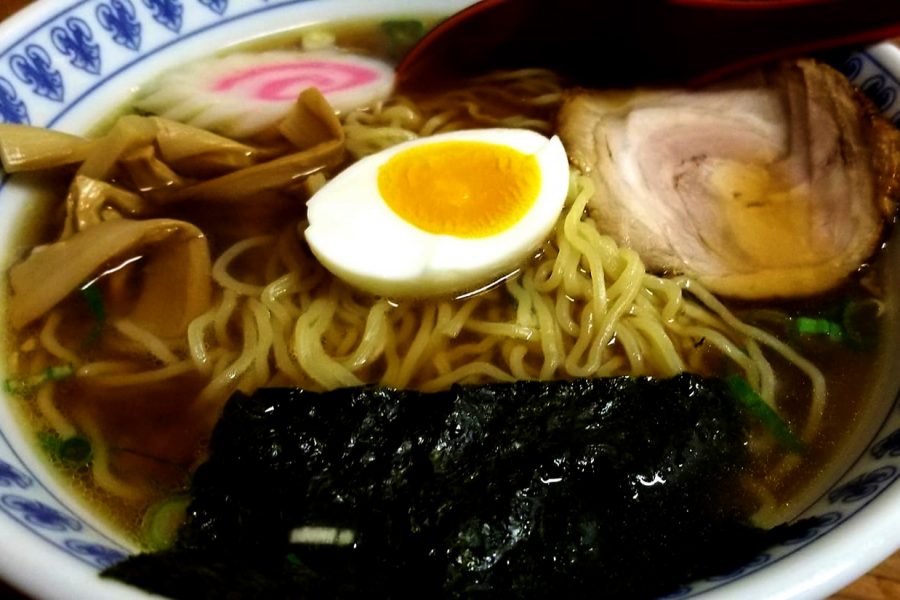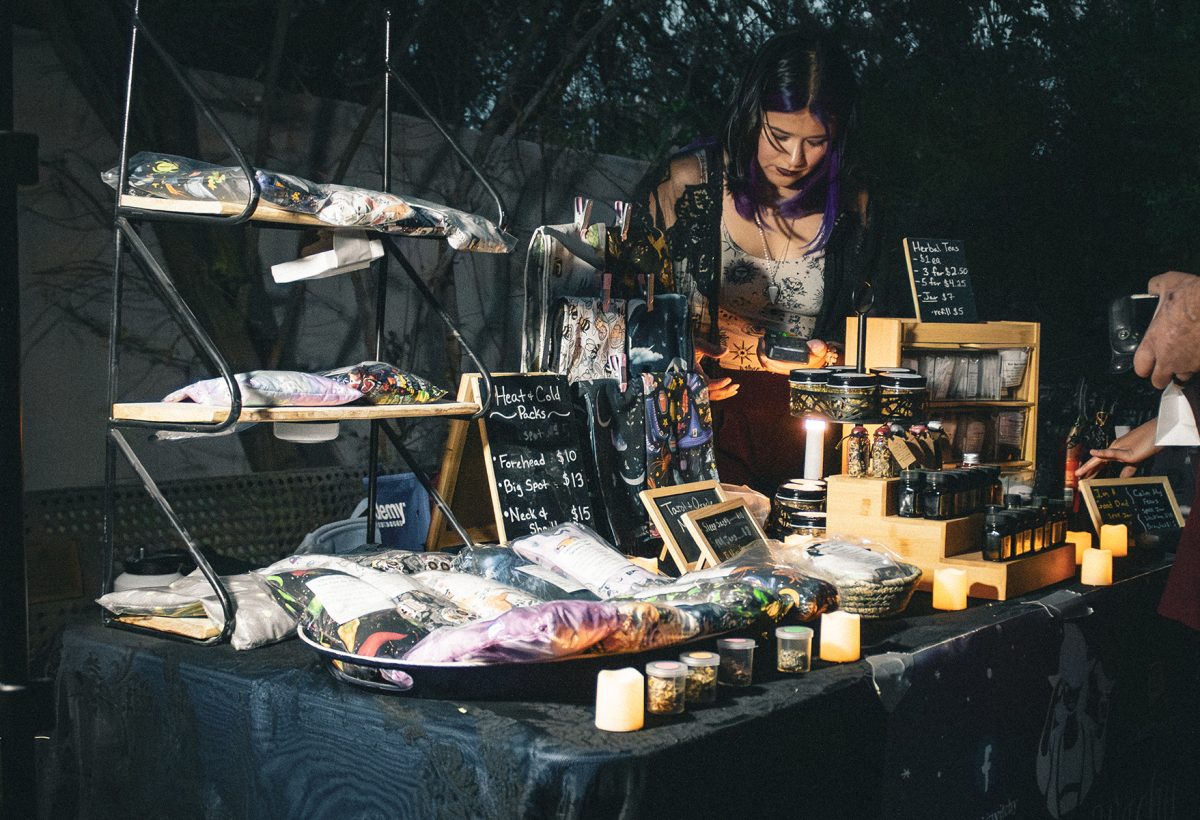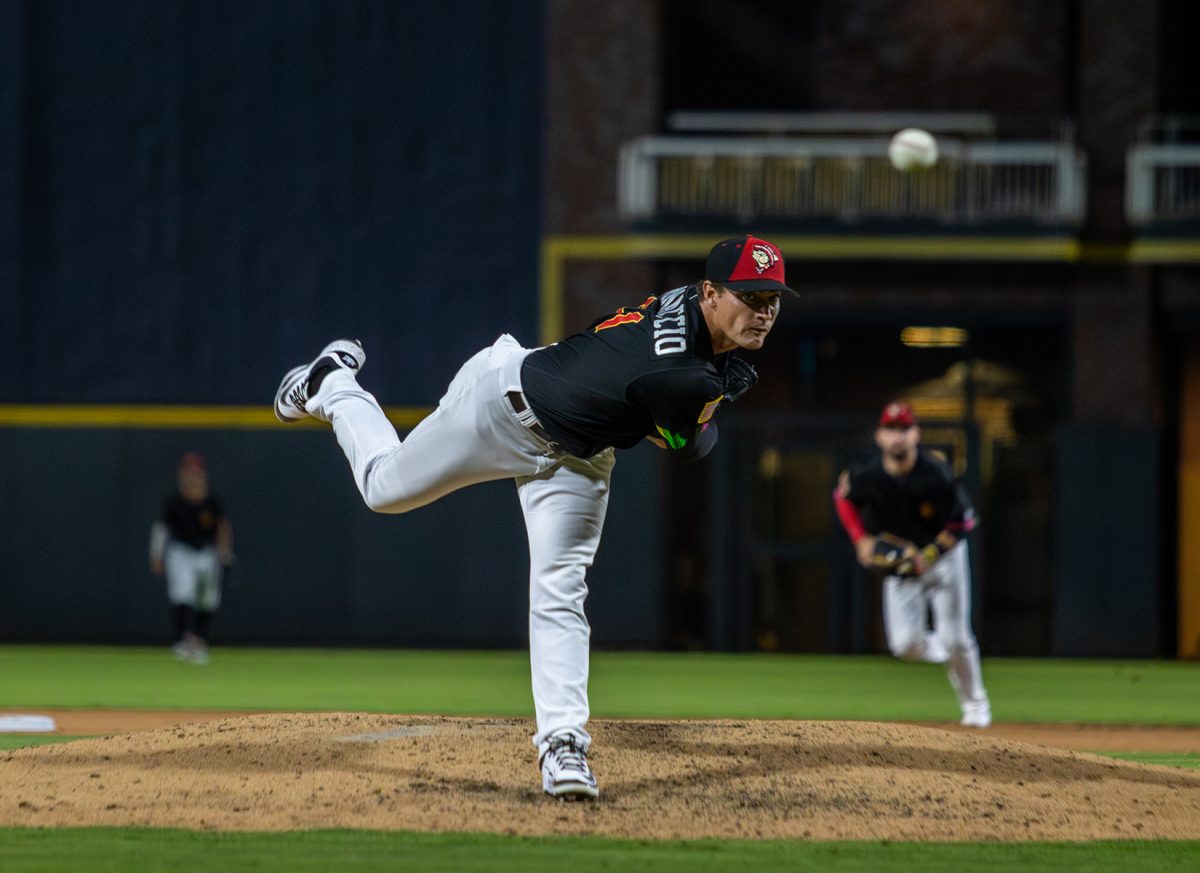Studio Ghibli films and popular anime shows like “Naruto” and “One Piece,” have all depicted traditional Japanese ramen, but the city of El Paso also has its own unique take on this famous dish.
Some recognize the dish as “Maruchan” or cup noodles, which is simply a Styrofoam cup filled with dry noodles and vegetables that only requires hot water to be ready to eat. However, the actual Japanese dish that’s been around for centuries is far from a convenient instant meal.
Regular ramen noodles are made from wheat flour, water and salt in order to create the dough which is then hand-pulled, cut and steamed. The traditional ramen recipe calls for “kansui,” which is alkaline water that gives the noodles a springy quality and can be substituted with baking soda.
Ramen is a versatile dish that can be served with either a meat, chicken, vegetable or fish-based broth and is usually topped with pork belly slices, fresh scallions, a soft-boiled egg, menma (fermented bamboo) and narutomaki, a type of processed fish paste usually depicted in the ramen of anime shows. Ramen bowls can also be vegan, served with completely plant-based ingredients.
In El Paso, several ramen spots can be found in the city’s west side like Ramen Ishiba on 210 N. Stanton St. and Noodles & Dumplings on 6303 N. Mesa St. In the Montecillo area next to Mesa Street is El Cuartito, a restaurant that offers Mexican-style ramen.
“It’s Mexican ramen. It’s like a mix of ramen and menudo or pozole. A lot of Mexican customers come here and really enjoy it,” said Berenice Padilla, 19-year-old El Cuartito employee.
Across the street from UTEP on 204 Boston Ave. is the ramen shop Kaedama, owned by Andres Romero and chef Gabe Valencia.
The restaurant started off as a mobile ramen bus that served noodles and sushi burritos, often stationed outside Deadbeach Brewery, where long lines of people formed along Durango Street.
“I’ve never seen that kind of loyalty. I want to even say it is a fan base because once (Kaedama) got really popular with the truck, it was able to really kick-start,” said Luis Rene Flores, Kaedama marketing manager. “Even though it is Japanese, I feel it can also have a Mexican touch to it, because we are here on the border. We are all Mexicans in this kitchen and we’re proud of it.”
Like El Cuartito, Kaedama also offers Mexican-influenced ramen with the same Japanese essence.
An example of this combination is “The Tejano,” which is a ramen dish that includes jalapeños toreados in a pork-based broth. Another ramen dish even comes in a chipotle-based broth.
In El Paso’s east side, there are also a few popular ramen spots like Redds Ramen Ya on 1651 N. Zaragoza Road, which offers traditional ramen flavors like Tonkatsu based in pork broth.
In Northeast El Paso is a small Japanese restaurant called Matsuharu Japanese Restaurant, a family-owned business founded in 1998 on 4886 Hercules Ave.
Matsuharu owner Tamy Wilson, 70, was born in Japan where she lived for 40 years.
With the number of customers that visit Matsuharu on a weekly basis, the small restaurant can only accommodate a limited number of customers and often has an hour-long waiting list.
When asked if Matsuharu has considered expanding, Wilson nodded her head and said it wouldn’t be the same because the chefs making the ramen wouldn’t have the firsthand experience with Japanese culture like her.
“A lot of places make ramen but not exactly traditional or authentic. It’s more catered toward the culture here,” said the owner’s daughter, Tomoko Wilson.
Popular ramen bowls at Matsuharu include the “Spicy Miso,” a high-protein fermented food paste consisting of soybeans, salt and grains with protein of choice.
The menu also offers Japanese side dishes like dumplings and korokke, which is a potato cake along with other options like “onigiri” which are rice triangles wrapped in seaweed, stuffed with a pickle.
“Matsuharu opens a window into Japan for the Mexican community. It welcomes you into its small but comfortable space. From its traditional low tables with cushions, to its friendly Japanese owners and their authentic large portions of savory ramen,” said Matsuharu customer Ruby Franco, 24. “Its overall atmosphere is truly a slice of Japan.”
Jaqueline Martinez may be reached at [email protected]









